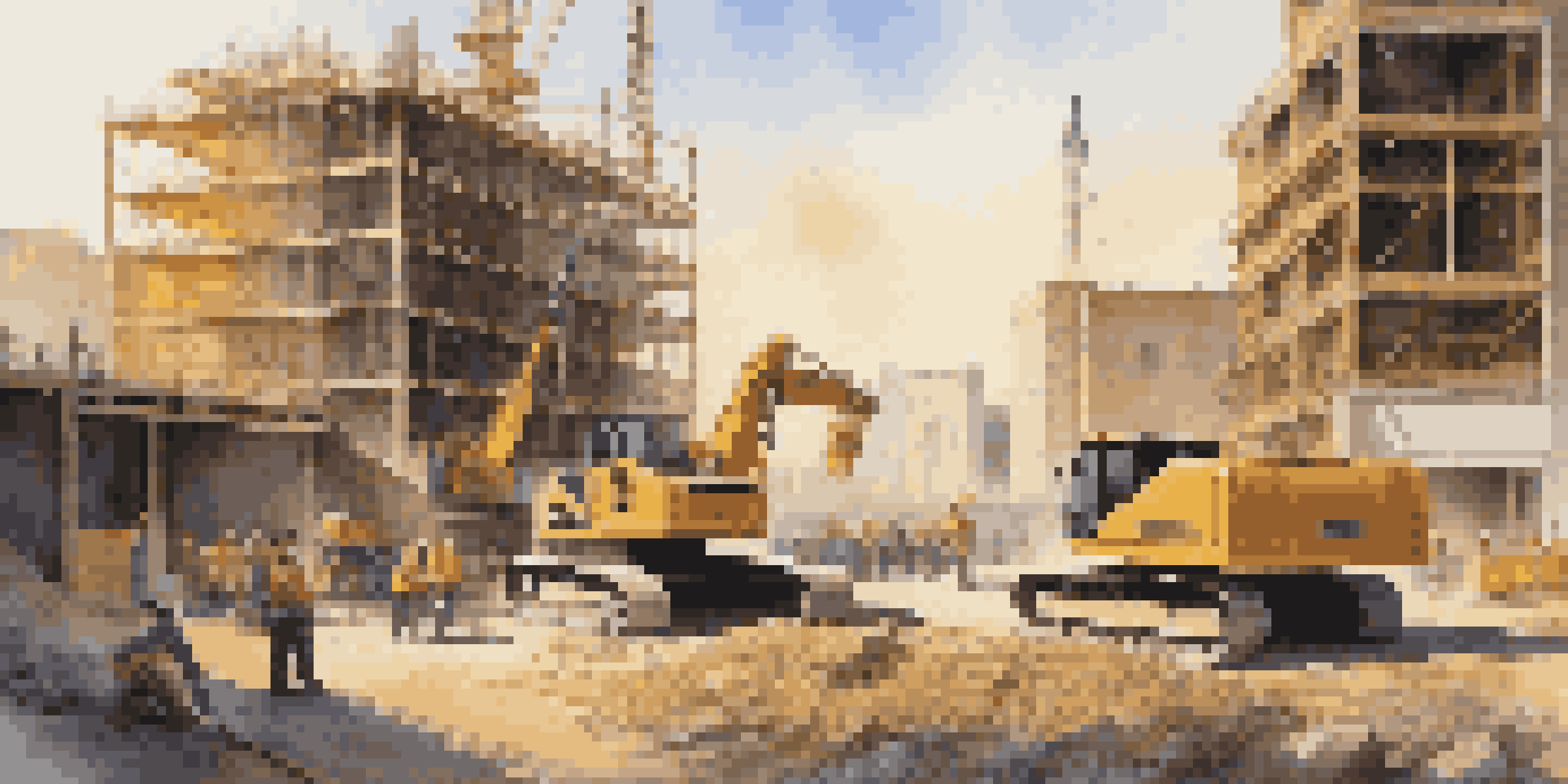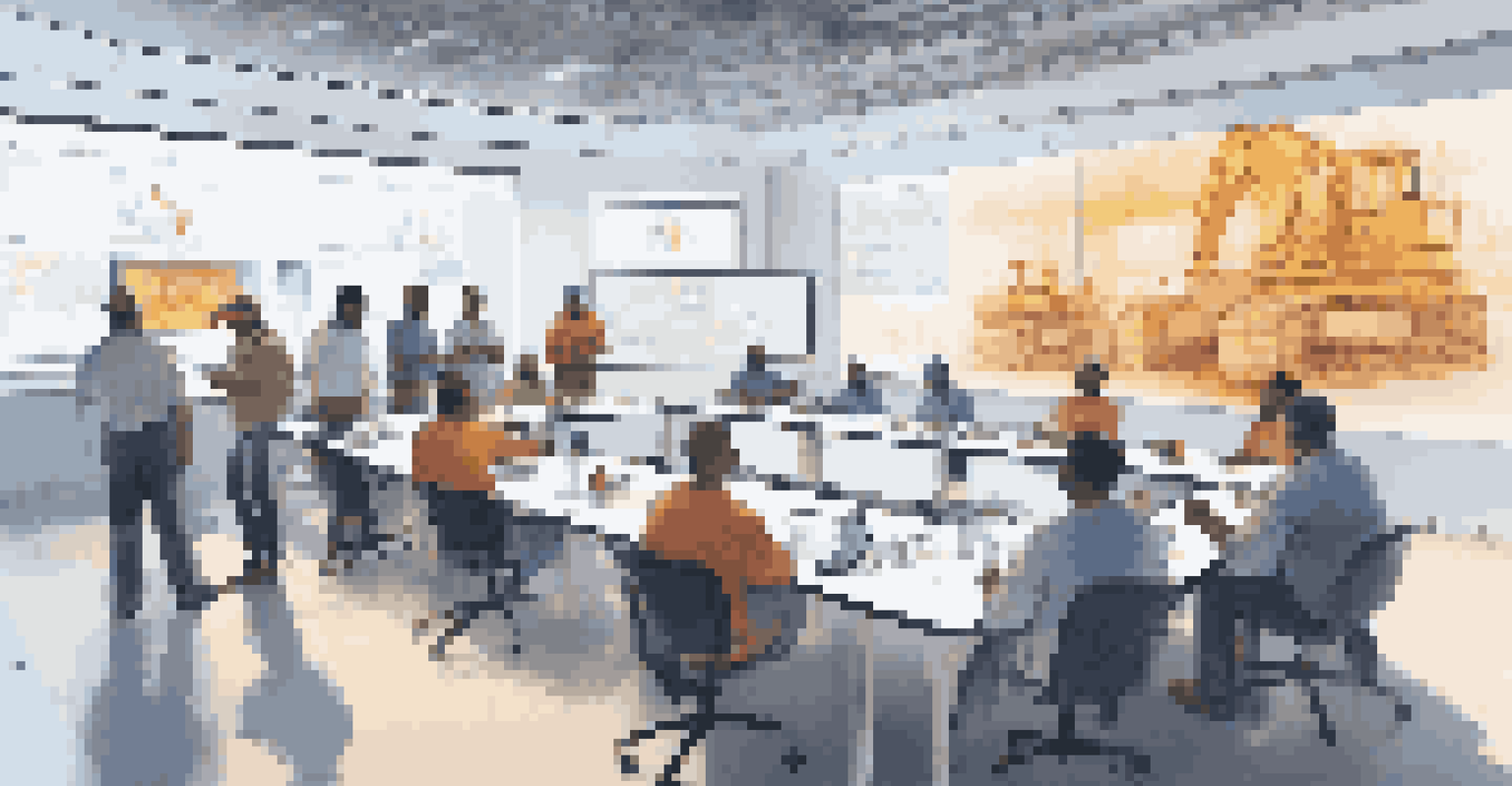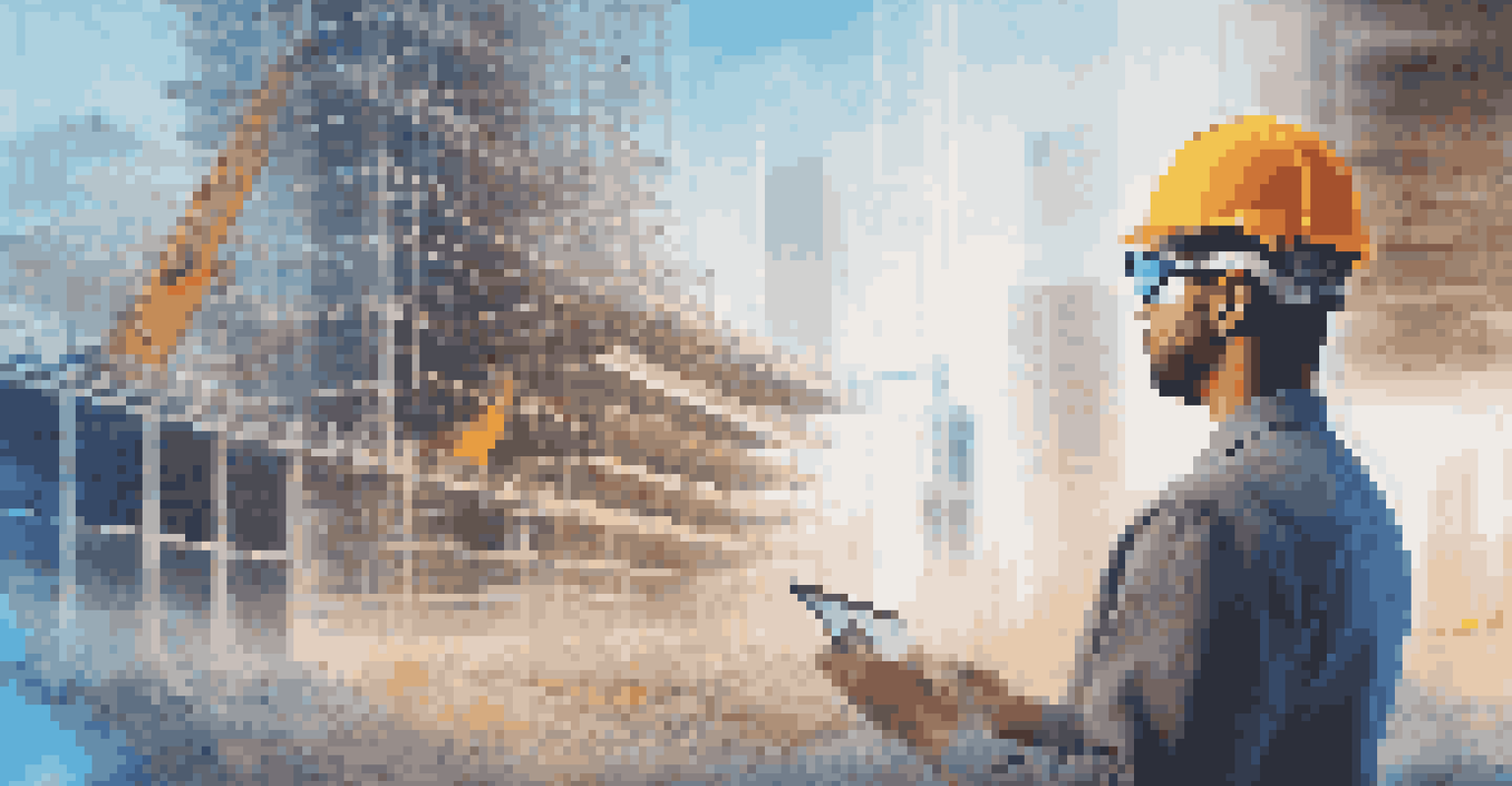AI in Construction: Redefining Job Roles and Skills

Understanding AI's Impact on Construction Job Roles
Artificial Intelligence (AI) is revolutionizing many industries, and construction is no exception. From design to project management, AI tools are changing how tasks are performed and who performs them. This shift means that traditional roles are evolving, requiring workers to adapt to new technologies and processes.
Artificial Intelligence will be the best or worst thing ever for humanity. We do not yet know which.
For instance, project managers can now utilize AI algorithms to predict project delays and optimize schedules. This not only enhances efficiency but also allows managers to make informed decisions based on real-time data. As a result, the role of a project manager is becoming more analytical and data-driven.
Moreover, field workers are also seeing changes in their job descriptions. With the introduction of AI-driven machinery, tasks that once required manual labor can now be automated. This evolution necessitates that workers develop new skills to operate and maintain these advanced tools.
Emerging Skills Required in an AI-Driven Construction Landscape
As AI continues to integrate into construction, there’s a growing demand for specific skill sets. Familiarity with AI technologies, data analysis, and machine learning is becoming increasingly valuable. Workers who can interpret data and understand AI outputs will be in high demand as the industry continues to evolve.

Additionally, soft skills are gaining importance as well. Collaboration and problem-solving are essential, especially when working alongside AI systems that require human oversight and decision-making. Workers must also be adaptable, as the construction landscape will continue to change rapidly.
AI is Transforming Job Roles
As AI integrates into construction, traditional job roles are evolving, requiring workers to adapt to new technologies and processes.
For example, a traditional carpenter may now need to learn how to use AI tools for precision measurements or 3D modeling software. This shift encourages continuous learning, making it imperative for workers to stay updated on the latest technologies and training opportunities.
AI-Enhanced Safety Protocols in Construction
Safety is paramount in construction, and AI is playing a crucial role in enhancing safety protocols. Smart sensors and AI-powered monitoring systems can identify potential hazards in real-time, alerting workers to dangers before accidents occur. This proactive approach to safety not only protects workers but also reduces project delays and costs.
The future of work is not about man versus machine, but rather man with machine.
For instance, wearable devices equipped with AI technology can monitor workers' vital signs and environmental conditions. If a worker is at risk of heat exhaustion or exposure to harmful gases, the system can send alerts, ensuring timely interventions. This integration of technology fosters a safer work environment.
As a result, safety managers are now required to be well-versed in these technologies. They must understand how to implement AI tools effectively and train workers on how to use them. This shift in focus emphasizes the importance of tech-savvy individuals in maintaining safety standards.
The Role of AI in Project Planning and Management
AI is transforming project planning and management by providing insights that were previously unattainable. Advanced algorithms can analyze vast amounts of data to forecast project timelines and budgets more accurately. This capability allows teams to strategize effectively and allocate resources efficiently.
Furthermore, AI can assist in risk management by identifying potential issues before they escalate. By analyzing historical data, AI systems can predict challenges, enabling project managers to devise contingency plans. This proactive approach minimizes disruptions and enhances project delivery.
New Skills Are Essential
The demand for skills in AI technologies, data analysis, and adaptability is increasing, making continuous learning crucial for workers.
For instance, construction companies using AI-driven project management tools have reported a significant reduction in overruns and delays. As these technologies become more prevalent, the demand for project managers proficient in AI will undoubtedly rise, further redefining the role.
Collaboration Between Humans and AI in Construction
The future of construction lies in the collaboration between humans and AI technologies. Rather than replacing jobs, AI is designed to complement human capabilities, allowing workers to focus on higher-level tasks. This synergy can lead to increased productivity and innovation within the industry.
For example, while AI can handle data analysis and repetitive tasks, human workers bring creativity, intuition, and experience to the table. Architects and designers can leverage AI-generated insights to enhance their designs, creating buildings that are not only functional but also aesthetically pleasing.
This partnership encourages a shift in mindset, where workers see AI as an ally rather than a threat. Emphasizing collaboration will be key to ensuring that the workforce remains engaged and motivated as they navigate this new landscape.
Training and Education for AI in Construction
As AI continues to reshape the construction industry, training and education become essential. Educational institutions and training programs must adapt their curriculums to include AI-related skills and technologies. This ensures that the future workforce is equipped with the necessary knowledge and expertise to thrive.
Workshops, online courses, and certifications in AI applications in construction are becoming increasingly available. Companies are also investing in upskilling their employees to bridge the knowledge gap. This commitment to continuous learning fosters a culture of innovation and adaptability within the workforce.
AI Enhances Safety Protocols
AI-driven safety measures, such as smart sensors and wearables, are improving worker safety by identifying hazards and monitoring conditions in real-time.
By prioritizing education in AI technologies, the construction industry can ensure that workers are not only prepared for the future but also empowered to contribute to its evolution. This proactive approach will ultimately lead to a more skilled and resilient workforce.
The Future of AI in Construction: Trends to Watch
Looking ahead, AI is poised to play an even larger role in the construction industry. Emerging trends indicate a shift towards fully automated construction processes, where AI technologies will manage everything from design to execution. This evolution presents exciting opportunities for innovation and efficiency.
Moreover, the integration of AI with other technologies, such as the Internet of Things (IoT) and augmented reality (AR), will further enhance construction processes. For instance, IoT devices can provide real-time data on project progress, while AR can offer immersive design experiences, allowing stakeholders to visualize projects before they break ground.

As these trends continue to unfold, it will be crucial for industry professionals to stay informed and adaptable. Embracing these advancements will not only redefine job roles but also drive the construction industry's growth in the digital age.